March 4, 2024
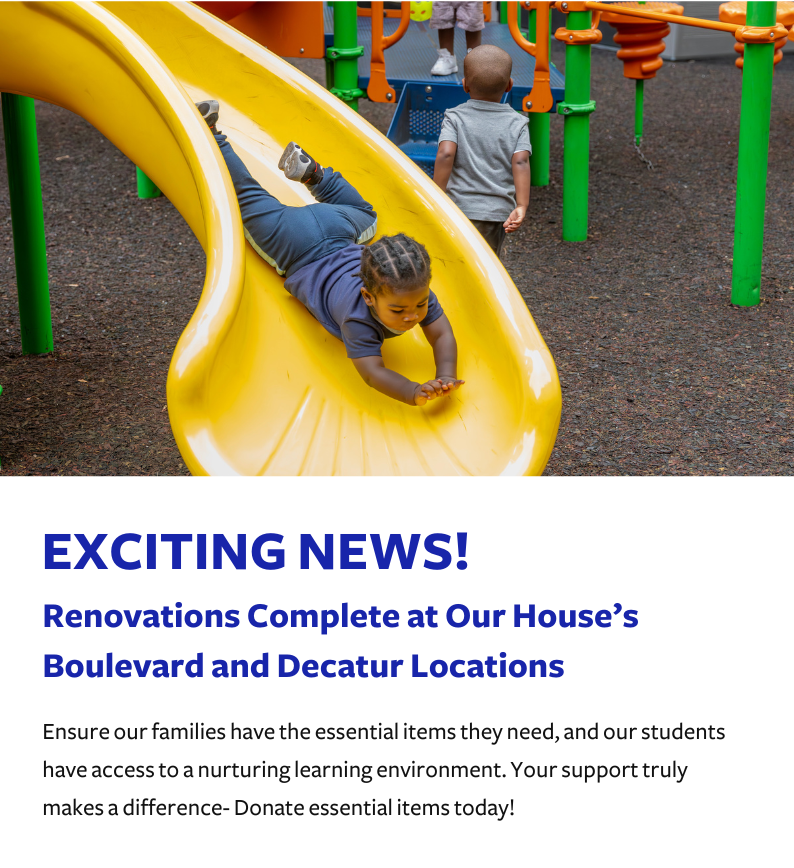


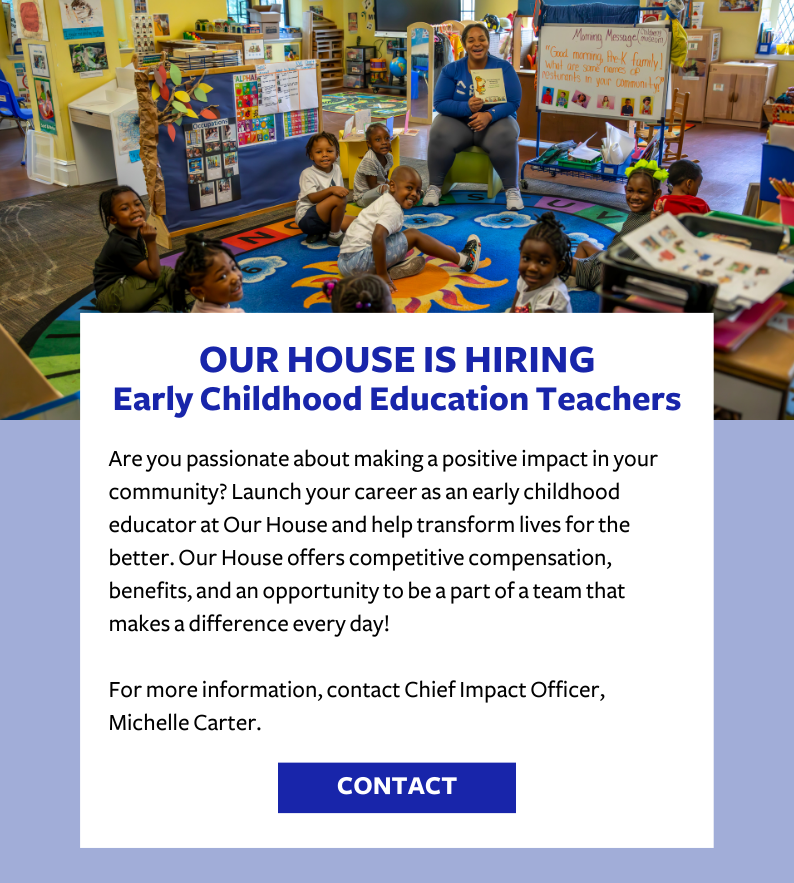

 On June 12, 2018, the Our House Decatur Pre-K had a very special visitor. State Senator Elena Parent, District 42, came to spend time with our rising Kindergarteners.
On June 12, 2018, the Our House Decatur Pre-K had a very special visitor. State Senator Elena Parent, District 42, came to spend time with our rising Kindergarteners. 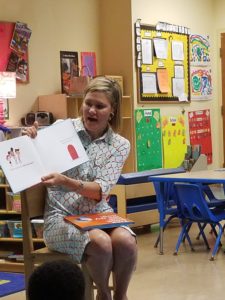 She read a few books to them and talked to them about transitioning to Kindergarten and how she would soon have a Kindergartener herself! Our House is so pleased to have continued support from Senator Parent and is so thankful that she took the time to share of herself with our children!
She read a few books to them and talked to them about transitioning to Kindergarten and how she would soon have a Kindergartener herself! Our House is so pleased to have continued support from Senator Parent and is so thankful that she took the time to share of herself with our children!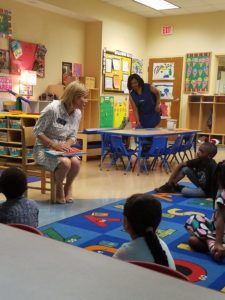
If grace is meeting someone where they are, and transporting them to somewhere else, then Melissa is in the grace business. Bright twinkling eyes, warm smile and welcoming demeanor, her background and life experiences have led “Melissa” to be empathetic and understanding for her students and their families who are experiencing homelessness.
Seven years ago, she found herself suddenly homeless and unemployed. When her son was three weeks old, “the altercation happened – it was the last of many,” involving her son’s father. Melissa left and stayed with her sister, who became afraid for her safety as well.
So her sister could feel safe again, Melissa left and moved into a temporary homeless shelter for 30 days. Then another and another.
“I was so depressed,” she said talking about her experience as a homeless mother of a newborn. “I didn’t know what to do. I didn’t know how to come from being not pregnant, having a job, having my own place; to meeting this man, being beat on, getting pregnant, not having a job, not having an education, not having nothing. My family was afraid of dealing with me because of this man.”
In a matter of months, Melissa’s life had changed and she spun into depression.
Soon she noticed everywhere she went, she heard about Our House. After moving a few times, she found her way to Our House and was quickly welcomed into the community.
“When I got to Our House they pretty much held my hand through everything. I got him (my son) into Our House. It was just amazing. I’ve been working with kids for years,… I knew what quality looked like and the first day I was so comfortable. I was excited – I knew right off it was going to be the greatest fit for the both of us.”
It was a great fit. While her son was in the early learning center, Melissa’s Family Advocate at Our House helped her through the process of earning her GED, finding housing and enrolling in the Our House’s Child Development Associate (CDA) program.
“I thought it was going to be like a college,” Melissa said. “[But] when I got there they had play dough at the table and little toys.” The rigorous five month program, held in the Decatur location, required grit and determination to finish. Her class, which started with over 20 students, graduated about half of those enrolled.
Melissa said she cried during her graduation speech. “I never in my life started something major and finished it. It wasn’t easy, but the program kept me there.” Even though Melissa was still struggling with depression, and had trouble finding traditional housing, she persevered and graduated.
Her pride is obvious and reflects the hard work she put in to earn her degree and her current dedication to her students. Melissa interned at the Atlanta location and was hired by Our House to serve as a teacher.
Seven years after she had to flee with her three week old baby, Melissa is living life on her own terms. “I’m now in my own apartment and [my son] goes to a charter school.”
Our House continued to work with Melissa through the transition as she gained employment and moved out on her own. “I had to learn how to handle money again,” she said. “Our House worked to help me manage my money, I was able to sustain employment and my own place. We are good now.”
Now that Melissa is “a completely different person” she is using her compassion and understanding to help others who are experiencing homelessness.
She loves teaching at the Atlanta location, “I feel like I am doing so much for the community, for the families too. It makes them feel comfortable when they hear that I’ve been through the program. That I’ve been homeless and that I’m doing great.” Melissa feels that they understand “you can use the experience and be better than what you were.”
The hardest part of teaching these children is seeing “the stress on the kids, it brings me back, it brings me back,” she said with tears in her eyes. She recently had a four year old child tell her about the police coming the night before and taking someone to jail. “These are things you should not witness – he was so stressed – during dramatic play he just told me all of this,” Melissa said
“The hardest part is to see the stress and struggle,” she said, “but we are here to help them,” she said with determination. Melissa knows that by giving families a shelter to live and an education to thrive, we meet them where they are at that particular moment and help them rise up to a new level.
– By Jackie Cushman
The best teachers love watching their students learn and grow. “Michelle’s” energy and excitement are contagious as she talks about her 3 and 4 year old students and their progress despite their homeless situations. Our House is “a great place. This past year… it had to be the most amazing class I have ever taught,” she gushes. “You could actually see the ‘a-ha’ moments. They all want to come to school…They are so excited. They run down the hall to come to the classroom.”
With a teacher as enthusiastic and energized as Michelle, it’s easy to understand why the children would run to school. The children are “so full of energy, so willing to learn and they have a great foundation from the previous teachers that I could stretch” their learning even further, she says.
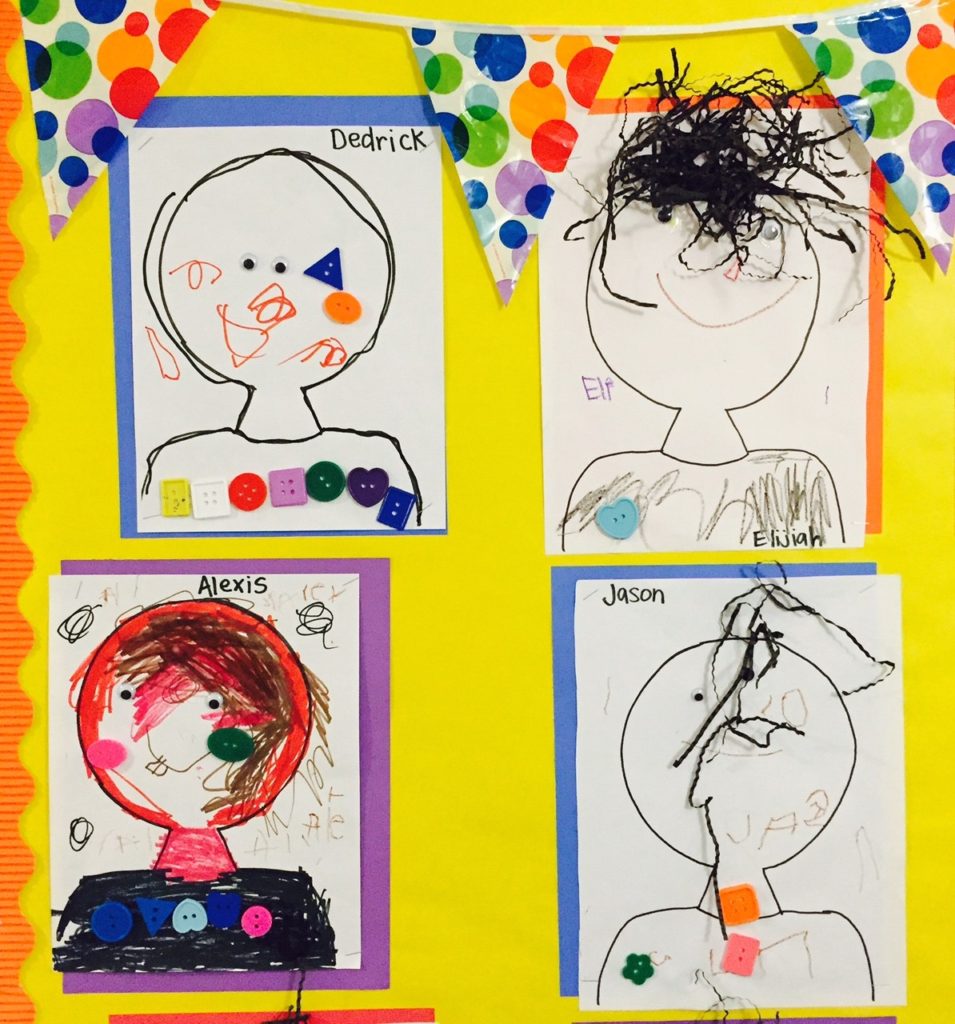
At Our House, it’s not just about the students, but also their parents. “We have a relationship with the parents and (understand) how much they want their children to succeed.” Michelle says the relationships between the teachers and the parents start at the very beginning of the year. The goal: to assist the parents so they can bring their children back to school. What makes a difference according to Michelle is “the consistency within the education department – it’s a familiar setting.”
The year might start off slow, with some children in the 3-to-4-year-old classroom not speaking for the first month. “The first month is very difficult, especially for the kids that have gone through a traumatic situation,” Michelle says.
“There has been so much happening with their lives that they are not comfortable with strangers, they are not comfortable with other kids, they have never played or shared.” Compound a new daily environment and new faces on top of ever changing night situations and you can begin to understand how hard it must be for children who are experiencing homelessness. The secure home foundation that so many students take for granted is not there for them.
But eventually, breakthroughs happen, at the right pace for each student. “The consistency and being able to keep them in the program is fantastic because in two or three months, (with) the same people the same routine… [the routine] really brings them out of their shells.” School becomes the place that provides the consistency, the stability, the foundation for many students’ lives. Over time, the ongoing interaction and daily work make a difference. “The kids we have now, they are very very intelligent because they had the consistency, because they have had the dedication, because they have had teachers who went to school be teachers.” The teachers at Our House really want to “help this age group, to help this community.”
What does this mean from the students’ perspective? “I would say they are going to be so ready for Kindergarten,” said Michelle. But it’s more than education, it’s also support. Part of serving this community is looking for ways to help the families so that they are able to bring their children to the school. Teachers and Family Services staff make sure that the transportation, health, and any other barriers are taken into account. Michelle says sometimes it’s as simple as just asking the question,“What do you need?”
Connecting with parents can be the hardest part of the job according to Michelle. “They have gone through so many things… they (may) have mental illnesses … they are ashamed of something, they don’t want to ask for anything.” Connection works best when the parents don’t feel as though “we are judging them whatsoever,” she notes. Our House teachers have completed training in the trauma-informed care model: training to help them interact with parents in a way that takes into account everything parents and children experiencing homelessness have been through. Connecting on a human level, asking about their job, their job search, or something as simple as mentioning a new haircut allows for a connection without criticizing. Our House provides shelter to live and education to thrive, thanks in large part their committed teachers who work with parents to provide the best learning environment for the children.
– By Jackie Cushman